Honour of Annaly - Feudal Principality & Seignory Est. 1172

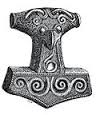

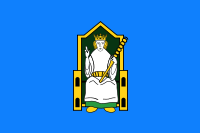
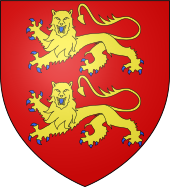
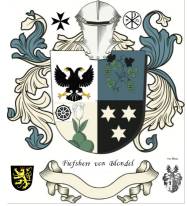
|
The Grant of Delvin to Nugent ( Now Earl of Westmeath )Section 13 of the Tenures Abolition Act 1662 , says: XIII. Provided also, that neither this act, nor any thing therein contained, shall infringe or hurt any title of honour, foedal or other, by which any person hath or may have right to sit in the lords house of Parliament, as to his or their title of honour or sitting in Parliament, and the privileges belonging to them as peers; this act or any thing therein contained to the contrary in any wise notwithstanding. The Grant and the Rights of Delvin an Nugents who sat in Parliament on multiple occasions from the 1300s to the 1600s and later.The form of instrument used before the year 1177 by Hugh de Lacy, when granting the district since called the Barony of Delvin to his kinsman Sir Gilbert de Nugent, appears to have been as follows :— [From Clarendon Collection, No. 4798, British Museum.] The ancient de Nogent family became Irish hundreds of year ago after Sir Gilbert de Nogent received the grant of the Delvin Region where the O'Finelan's lived in 1177 from Hugh de Lacy. De Nogent or Nugent married de Lacy's sister, and thus, may have inherited rights to the entire country of Meath and Westmeath.
The Ofinelan were historically noted as
Chiefs of Teffia which is now present day Longford
O'Finelan Name Meaning, Family History, Family Crest & Coats of Arms
https://www.houseofnames.com/o-finelan-family-crest
Learn about the O'Finelan Family Crest, its Origin and
History. ... Spelling variations of this family name include:
Finlan, Finland, Fenland, Fenlan, O'
Early Origins of the O'Finelan familyThe surname O'Finelan is historically found in Delvin, where they held a a caput or seat as chiefs Teffia or Westmeath. The clann, was of the Dalcassian race, a founding race/tribes of Ireland. Irelands history was greatly impacted by the Norman invasion of 1172, and hence, the surnames of Irish Gaelic clanns and septs and many of the Norman names became intermingled. Before the Norman invasions, the local lords were known as princes of principalities. Areas such as Westmeath and Longford were owned and controlled by the Princes of Annaly and other kings and princes before that. Baron Delvin/Nugent defeated and took control of the Longford/Annaly region in the 1500's and received several grants from King Philip, Edward, James and other monarchs of the Annaly region. After the ceding by the British of the Irish lands of Annaly back to Ireland, the rights of the ancient titles
still remained with citizens such as Earl Westmeath/Baron Delvin. These seignory or feudal rights to
the Longford-Westmeath ANNALY region were sold to various owners and now are held by the Seigneur of
Blondel of Guernsey which is a Crown Dependency. History of Barons of DelvinThat the Family of the Nugent have been settled in Ireland since the Reign of King Henry the Second, as appears by an ancient Grant, by which Hugh de Lacy gave to Gilbert de Nugent all his Lands of Delvin, by trie Description of •« Delvin totam quam in tempore Hibernicorum tenuerunt O Finclani cum omnibus pertinentiis," to hold to him and his Heirs by the Service of Five Knights Fees: That this Sir Gilbert de Nugent, not having any Issue at the Time of his Death, gave all his Estates to his Brother Richard, by the following Instrument: "De omnes conquestes et tenementa mea; viz4, Baroniam de Delvin, &c. quae quandum O Finclani et alii habuerunt fratri et consanguineo meo Ricard' de Capello de Nugent:" That this Richard de Nugent had Issue only One Daughter, Rosa, who married John into whose Family the Barony of Delvin appears to have passed by this Marriage, for in 46th Edw. 3d, Anno Dom. 1371, John Fitz John (Baron of Delvin) was summoned to Parliament by Writ, dated at Dublin, 13th February in that Year, as Baron of Delvin: That this John Fitz John de Tuit had Issue only One Daughter, Catherine, who married Sir William Nugent of Balrath, by which Means the Family of Nugent again acquired the Barony of Delvin, for it appears that this Sir William Nugent was summoned to Parliament by Writ as Baron of Delvin, and is commonly called the First Baron of Delvin: That this Sir William Nugent left Two Sons, Richard his eldest Son, who succeeded him as Baron of Delvin, and having married Catherine Daughter of Thomas Drake, had Issue James Nugent his eldest Son, and several other Children: That this James Nugent, who succeeded his Father, and thereby became the Third Baron of Delvin, married Elizabeth, elder Daughter and Coheir of Sir Robert Hollywood of Artane in the County of Dublin, and had Issue Three Sons, Christopher his eldest Son, and Successor in the Barony of Delvin, Robert Nugent, who settled at Drumcree in the County of WTestmeath, and Lavallin Nugent of Dysert, or Dysart, in the same County, from whom the present Claimant is descended: That this Christopher was the 4th Baron of Delvin, married Elizabeth (or Anne) Daughter of Sir Robert Preston of Gormanstoun, by whom he had Issue Sir Richard Nugent, who succeeded him, and was the 5th Baron of Delvin: That this Sir Richard Nugent, who lived in the Reign of King Henry the 6th and King Edward 4th, married the Lady Elizabeth Daughter of Gerald Fitz Gerald Earl of Kildare, by whom he had Issue Christopher the 6th Baron of Delvin, who sat in the Parliament which was held at Trim in the Reign of Richard 3d: That Christopher the 6th Baron of Delvin was succeeded by his Son Richard, who was the 7th
Baron of Delvin, and was summoned to Parliament in 1486, Anno 2° Henry 7th, and also in 1493; he was also summoned
to the Parliament which met at Castledermot, 28th August 1498, but neglecting to appear was fined 40*. for
Non-attendance: That Christopher was the Eighth Baron Delvin, sat in Parliament 20th Elizabeth, and died on the 17th August 1602. He married Lady Mary or Margaret, Daughter of Gerald the 11th Earl of Kildare, and left Issue Richard his eldest Son, and several other Children: That Richard the Ninth Baron of Delvin sat in Parliament in 1613 and in 1615, and by Privy Seal, dated at Westminster, 22d November 1621, he was (144.) created created Earl ofWestmeath, to him and the Heirs Male of his Body. He married Jane, Daughter of Christopher Killeen, and had several Sons, of whom the eldest, Christopher Lord Delvin, married Lady Ann M'Donnell, eldest Daughter of Randall Earl of Antrim, and died in the Lifetime of his Father, leaving an only Son, Richard, who succeeded to his Grandfather, and was the Second Earl of Westmeath: That this Richard married Mary, Daughter of Sir Thomas Nugent of Mayrath, Baronet, and by her had several Sons,
of whom the eldest was Christopher Lord Delvin, who married the eldest Daughter of the Honorable Richard Butler of
Killcash in the County of Tipperary, Esquire, and Niece to James Duke of Ormond, and dying in the Lifetime of his
Father left Issue Three Sons, Richard, Thomas, and John, and Three Daughters: That this Thomas, who was the Fourth Earl of Westmeath, having adhered to King James the Second at the Revolution, was outlawed for High Treason in 1691 j but being in the City of Limerick when it was besieged by King William, and One of the Hostages exchanged for the Observation of the Articles of Surrender, his Outlawry was reversed, and he was restored to his Estates and Honors: That he married Margaret, only Daughter of Lord Bellew, and by her had Two Sons, Christopher Lord Delvin the
elder, who died unmarried, at Bath, on the 12th April 1752, and John the Second Son, who died unmarried in 1725, in
the Lifetime of their Father, and Two Daughters, Lady Mary and Lady Catherine Nugent: That Lady Mary Nugent married Francis the 21st Baron of Athenry, and had several Children, of whom Thomas was the eldest, who upon the Death of his Father became Baron of Athenry, and was afterwards created Earl of Louth: That Thomas Earl of Louth died in January 1799, without any Male Issue, leaving Two Daughters, Lady Elizabeth, married to Thomas Baily Heath Sewell Esqr, and Lady Louisa Catherine' Mary, married to Joseph Henry Blake of Ardfry in the County of Galway, Esqr, and the Daughter of a deceased Daughter who died in the Lifetime of her Father, and who married Lord St. Laurence, Son to the Earl of Howth: That Lady Catherine Nugent married Andrew Nugent of Dysert, Esqr, who was lineally descended from James the Third Baron of Delvin, and by her left Issue Lavallan Nugent of Dysart and Tullaughan, Esq1, her eldest Son, lately deceased, the Petitioner John Nugent Esq1, Lieutenant Governor of Tortola and the Virgin Islands, her Second Son, Patrick Anthony Nugent, late a Captain in His Majesty's Service, and who died unmarried in the Year 1785, and several Daughters: That the said Lavallan Nugent, in the Year 1799, preferred a Petition to His Majesty, praying a Writ of Summons to sit in Parliament in the ancient Place of Baron of Delvin, his Ancestors, and lately died without Issue, and without ever having been married, leaving the Petitioner his only surviving Brother and Heir at Law, who is now seised and possessed of all the Estates, Lands, Tenements, and Hereditaments of which said Lavallan Nugent was seised and possessed: And Petitioner therefore prayed as follows, to wit, that as he is lineally descended from James the Third Baron of Delvin, and has considerable Real Estates in the County of Westmeath, and as the Two Daughters and Heirs of the late Earl of Louth and Baron of Athenry aforesaid have in them the ancient Barony of Athenry in Abeyance, and moreover are by reason of their Sex incapable of obeying a Writ of Summons to Parliament, he is the only Heir of Thomas the 4th Earl of Westmeath, his Grandfather, that can receive such a Summons, or do His Majesty the Service of a Parliamentary Baron: Wherefore he most humbly prays His Majesty, to grant him a Writ of Summons to sit in Parliament in the ancient Place of the Barons of Delvin, his Ancestors. SUMMONED TO PARLIAMENT An original Record of a Writ of Summons to Parliament on the Roll in the Rolls Office in Ireland of the 46th
Year of King Edward the Third. This Record is much obliterated and defaced by Time, but there remains enough to
show that it is directed to the Archbishop of Dublin, and summoned him to a Parliament to be holden at Dublin on
Wednesday next after the Feast of Saint Peter and Paul; it then sets out a Writ to the Sheriff to return Two
Knights of the Shire, and to warn certain Persons named to attend at the said Parliament, and then states that
similar Writs were directed to the other Sheriffs, and amongst the Persons directed to be warranted appears John
Fitz John, Baron of Delvin:
From the Fifth Year of the Reign of King Richard the Second, there is, for a very long Period, no Parliamentary Record or Document extant. In order therefore to prove the several Steps by which the Barony of Delvin descended in the Family of the Petitioner, we were referred to an antient Manuscript Book in the Library of Trinity College, Dublin, entitled " Irish Pedigrees," purporting to contain the Pedigrees of many Irish Families. We attended in consequence at the said Library, with the College Librarian; and in a Chamber of the said Library set apart for the Preservation of antient Manuscripts, which have been heretofore collected with great Care, as entitled to a Place in said Library, we there examined the said original Manuscript, and the Circumstances on which its Claim to Credit are founded.
Richard, who thus at the Age of Fourteen succeeded to his Grandfather, obtained, in the 4th and 5th Year of Philip and Mary, a Grant from the Crown of divers Estates in the County of Westmeath, as appears by an attested Copy of an original Record of said Grant remaining in the Office of the Rolls, which attested Copy has been laid before us, and is hereunto annexed. In a few Years after the Grant last mentioned, to wit, in the Second Year o^ Elizabeth, a Parliament Roll was
made, which amongst other Things contained the Names of Lords Spiritual and Temporal, and Commons, in a Parliament
held in that Year by Thomas Earl of Sussex at the City of Dublin. This Parliament Roll was in the Office of the
Rolls aforesaid so lately as the Year 17t55, for in that Year the Claim of the late Countess Dowager of Tyrone to
the Barony of Le Poer was depending; and a Copy of it was then taken in the Rolls Office, and duly attested by the
then Keeper of the Rolls, or his Deputy, and was One of the Documents relied on by the Attorney and Solicitor
General of that Time, in their Report in favor of her Ladyship's Claim; nevertheless this antient and important
Record is not now to be found; and where a Document of such a Nature has been lost or mislaid, it is not surprising
that the Copy so taken and attested should likewise have escaped the Search of the Complainant, a Misfortune by
which there is Reason to believe that the Claimant has been deprived of a Piece of Evidence which would support his
Statement in the strongest Manner, for we have seen a Copy of that Record, which, tho' not attested, has every
Appearance of Authenticity; it is preserved by the Family of Lady Tyrone in a Copy of the Proceedings and Documents
in her Case, and amongst the Temporal Lords it mentions Richard Nugent Baron of Delvin, agreeing in the Christian
Name with the Record aforesaid in the Reign of "Philip and Mary. In the 27th Year of Queen Elizabeth another List was made of the Lords Spiritual and Temporal, Counties, Cities, and Borough Towns, as are answerable to the Parliament of this Realm. This List is circumstanced in all respects as that in the 2d Year of Queen Elizabeth above mentioned; and we have, as in that Instance, seen a Copy, which seems to be authentic, and contains the Baron of Delvin, but it states no Christian Names. The old Manuscript states that Christopher died in the Year 1602, in Prison in the Castle of Dublin, leaving a Son, Richard, who is therein called Comes, and states to have been created Earl of Westmeath on the 4th of September in the Year 1621. The Patent of his Creation is not to be found, but in the First Volume of the Lords Journals a full and exact Copy thereof is set out, a Copy whereof is hereunto annexed, which agrees exactly with the old Manuscript above mentioned, and from which it appears that the said Earldom was granted to the said Richard Baron of Delvin in Tail Male; and it is notorious that under that Patent the present Earl of Westmeath sits in Parliament at this Day, and has been elected one of the Representatives of the Irish Peerage in the Imperial Parliament.
Upon Consideration of the whole of the Evidence aforesaid, we are humbly of Opinion that Petitioner has proved all the material Allegations of his Petition—that the said Barony of Delvin is an antient Barony in Fee, and has already already been inherited as such by a Female; that the said Barony is now in Abeyance between Petitioner as the sole Heir of Lady Catherine Nugent aforesaid, and the Coheiresses of Lady Mary Nugent, to wit, the Lady Elizabeth Duffield, the Four Daughters of Lady St. Laurence, and Lady Wallscourt aforesaid; and that it depends wholly upon His Majesty's Royal Pleasure whether the said Barony shall remain in Abeyance, or shall vest in any of the said Persons, and whether His Majesty shall, according to the Prayer of the Petition, and for the Reasons therein mentioned, or any other, grant Petitioner a Writ of Summons to sit in Parliament in the antient Place of the Barons of Delvin, his Ancestors.
CITE: Letter ... relative to the Read pedigree; and copies of several reports from ... |
About Longford Feudal Prince House of Annaly Teffia Rarest of All Noble Grants in European History Statutory Declaration by Earl Westmeath Kingdoms of County Longford Pedigree of Longford Annaly What is the Honor of Annaly The Seigneur Chronology of Teffia Annaly Lords Paramount Ireland Market & Fair Chief of The Annaly One of a Kind Title Lord Governor of Annaly Prince of Annaly Tuath Principality Feudal Kingdom Irish Princes before English Dukes & Barons Fons Honorum Seats of the Kingdoms Clans of Longford Region History Chronology of Annaly Longford Hereditaments Captainship of Ireland Princes of Longford News Parliament 850 Years Titles of Annaly Irish Free State 1172-1916 Feudal Princes 1556 Habsburg Grant and Princely Title Rathline and Cashel Kingdom The Last Irish Kingdom Landesherrschaft King Edward VI - Grant of Annaly Granard Spritual Rights of Honour of Annaly Principality of Cairbre-Gabhra House of Annaly Teffia 1400 Years Old Count of the Palatine of Meath Irish Property Law Manors Castles and Church Lands A Barony Explained Moiety of Barony of Delvin Nugents of Annaly Ireland Spiritual & Temporal Islands of The Honour of Annaly Longford Blood Dynastic Burke's Debrett's Peerage Recognitions Water Rights Annaly Writs to Parliament Irish Nobility Law Moiety of Ardagh Dual Grant from King Philip of Spain Rights of Lords & Barons Princes of Annaly Pedigree Abbeys of Longford Styles and Dignities Ireland Feudal Titles Versus France & Germany Austria Sovereign Title Succession Mediatized Prince of Ireland Grants to Delvin Lord of St. Brigit's Longford Abbey Est. 1578 Feudal Barons Water & Fishing Rights Ancient Castles and Ruins Abbey Lara Honorifics and Designations Kingdom of Meath Feudal Westmeath Seneschal of Meath Lord of the Pale Irish Gods The Feudal System Baron Delvin Kings of Hy Niall Colmanians Irish Kingdoms Order of St. Columba Chief Captain Kings Forces Commissioners of the Peace Tenures Abolition Act 1662 - Rights to Sit in Parliament Contact Law of Ireland List of Townlands of Longford Annaly English Pale Court Barons Lordships of Granard Irish Feudal Law Datuk Seri Baliwick of Ennerdale Moneylagen Lord Baron Longford Baron de Delvyn Longford Map Lord Baron of Delvin Baron of Temple-Michael Baron of Annaly Kingdom Annaly Lord Conmaicne Baron Annaly Order of Saint Patrick Baron Lerha Granard Baron AbbeyLara Baronies of Longford Princes of Conmhaícne Angaile or Muintir Angaile Baron Lisnanagh or Lissaghanedan Baron Moyashel Baron Rathline Baron Inchcleraun HOLY ISLAND Quaker Island Longoford CO Abbey of All Saints Kingdom of Uí Maine Baron Dungannon Baron Monilagan - Babington Lord Liserdawle Castle Baron Columbkille Kingdom of Breifne or Breny Baron Kilthorne Baron Granarde Count of Killasonna Baron Skryne Baron Cairbre-Gabhra AbbeyShrule Events Castle Site Map Disclaimer Irish Property Rights Indigeneous Clans Dictionary Maps Honorable Colonel Mentz Valuation of Principality & Barony of Annaly Longford“The Princely House of Annaly–Teffia is a territorial and dynastic house of approximately 1,500 years’ antiquity, originating in the Gaelic kingship of Teffia and preserved through the continuous identity, property law, international law, and inheritance of its lands, irrespective of changes in political sovereignty.”
Feudal Baron of Longford Annaly - Baron Longford Delvin Lord Baron &
Freiherr of Longford Annaly Feudal Barony Principality Count Kingdom of Meath - Feudal Lord of the Fief
Blondel of the Nordic Channel Islands Guernsey Est. 1179 George Mentz
Bio -
George Mentz Noble Title -
George Mentz Ambassador - Order of the Genet
Knighthood Feudalherr - Fief Blondel von der Nordischen
Insel Guernsey Est. 1179 * New York Gazette ®
- Magazine of Wall Street - George
Mentz - George
Mentz - Aspen Commission - Ennerdale - Stoborough - ESG
Commission - Ethnic Lives Matter
- Chartered Financial Manager -
George Mentz
Economist -
George Mentz Ambassador -
George Mentz - George Mentz Celebrity -
George Mentz Speaker - George Mentz Audio Books - George Mentz Courses - George Mentz Celebrity Speaker Wealth
Management -
Counselor George Mentz Esq. - Seigneur Feif Blondel - Lord Baron
Longford Annaly Westmeath
www.BaronLongford.com * www.FiefBlondel.com |
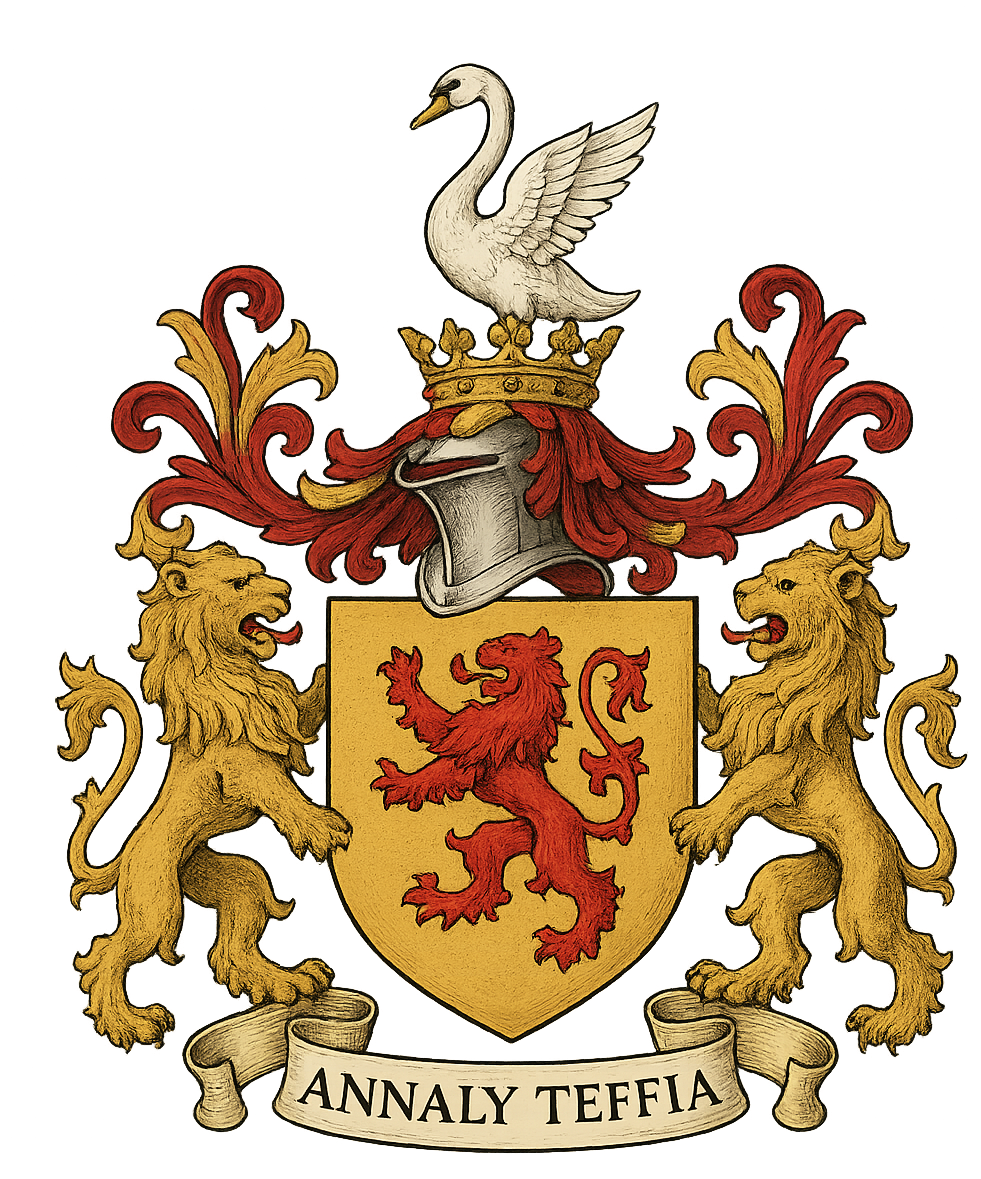
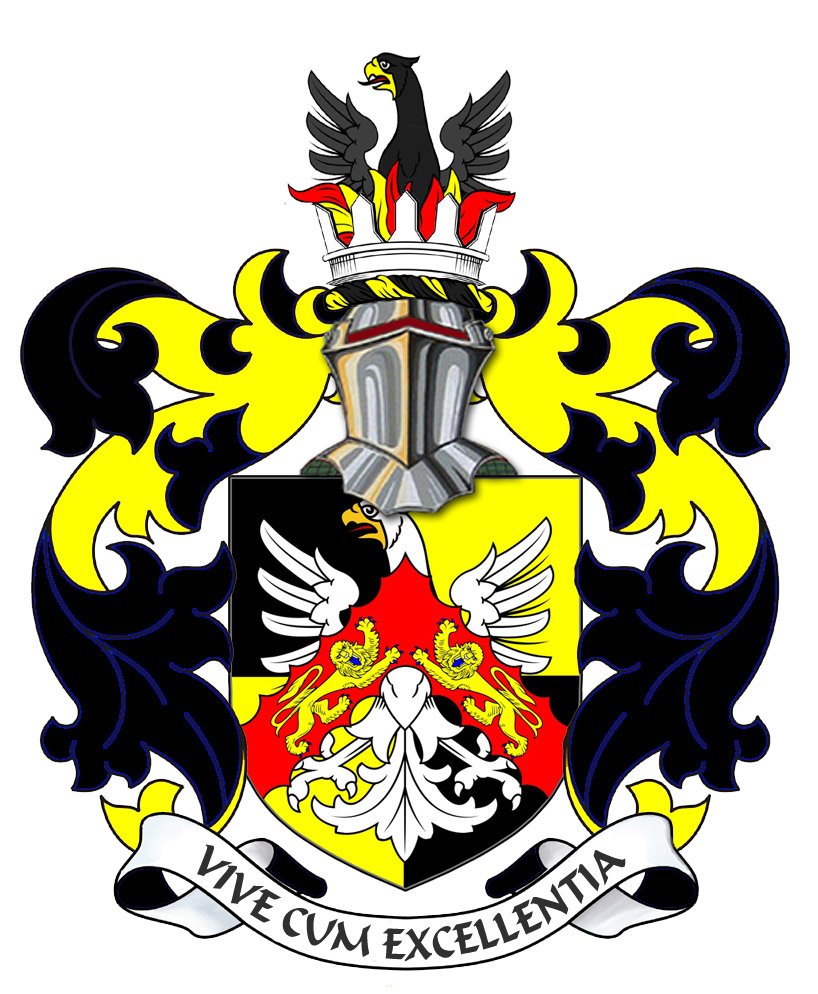
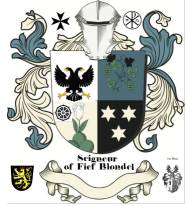
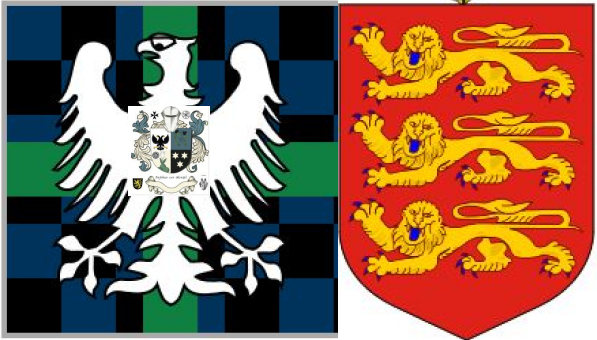

Commissioner George Mentz - George
Mentz Law Professor - George
Mentz Economist
George Mentz News -
George Mentz Illuminati Historian -
George Mentz Net Worth
The Globe and Mail George Mentz
Get Certifications in Finance and Banking to Have Career Growth | AP News
